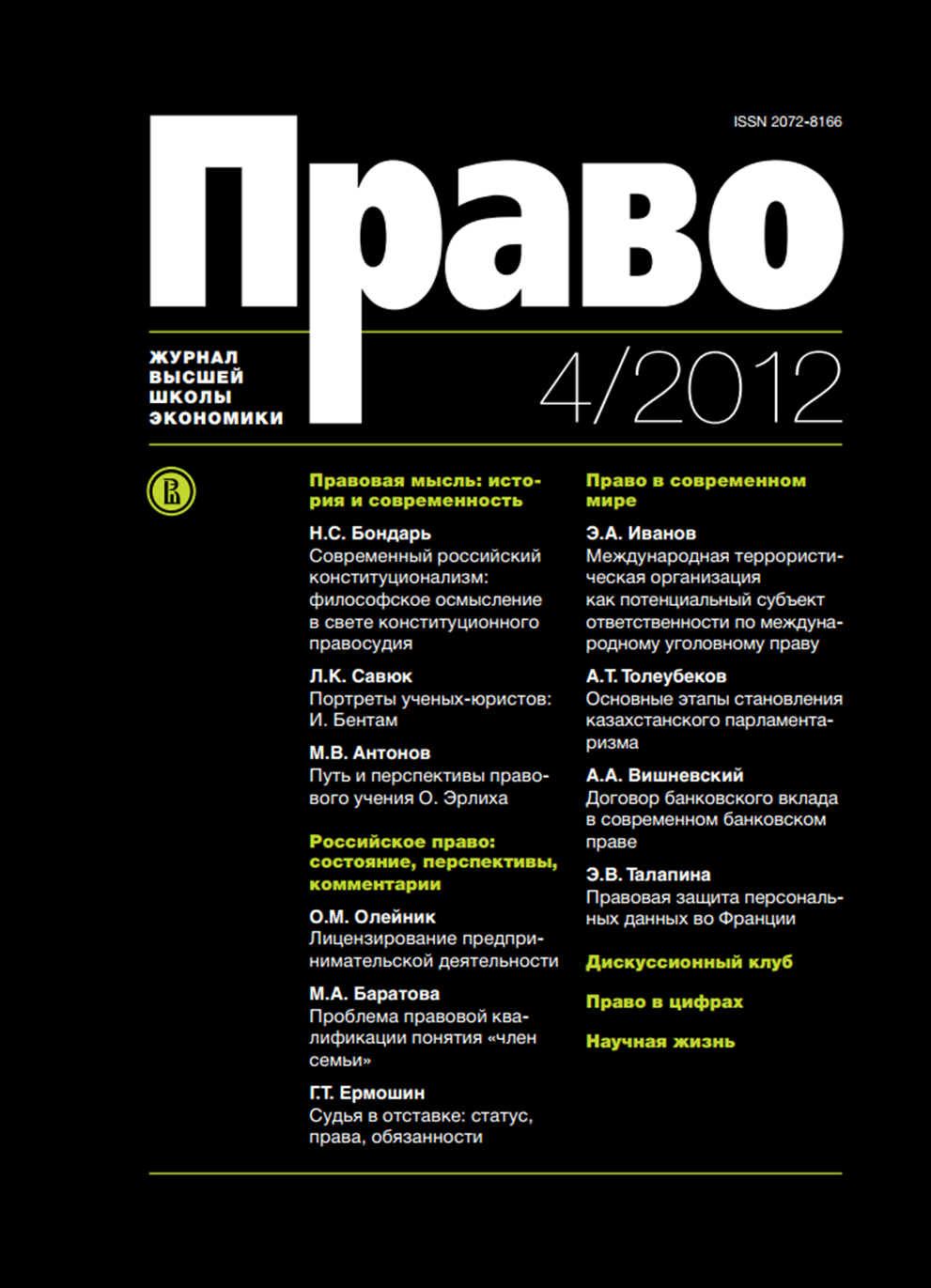Legal Protection of the Personal Data in France
Abstract
Talapina Elvira - Senior Researcher, Institute of State and Law, Russian Academy of Sciences, PhD, LLD (Law). E-mail: talapina@hotmail.com
Address: Znamenka St., 10, Moscow, Russian Federation, 119019
The paper features the approach in the current French legal doctrine, laws and legal practice as to personal data. The research has involved the analysis of the French Constitution of 1958, civil and criminal codes, and ordinances. The author also studies the EU conventions and relevant judgements of the French Constitutional Council. Wide and multidimensional problem of protecting personal data is being discussed in the article from three different views: 1) right to privacy as to health information, 2) consumer rights, 3) security of processing and storing personal data. Loopholes in constitutional law regulation of the problem and their consequences are also part of the discussion. The article studies the balance between common and specific in the approach of French legislators and EU law to regulating these problems. The author makes a conclusion that the current approach to data protection in France is a mix of French and European norms as well as judicial rules. Traditions of administration, etatism typical of the French state and evident in its constitutional regime inevitably contradict modern and liberal approach of the EU. The EU’s specific approach is caused by the evidence of neutrality of the latest information and communication technologies and involving public in the regulation of the Internet. The necessity in data protection does not cause any objections in France at the level of legal doctrine and the Constitutional Council with the reputation of the most European institution in France. However the gap between the internal administration and legal practice under EU standards has not been bridged. There is no doubt that a full-fledged data protection requires relevant legal and technological measures, which has not been implemented in this state.

